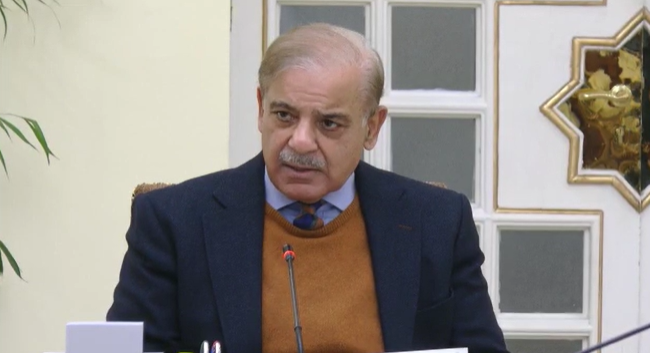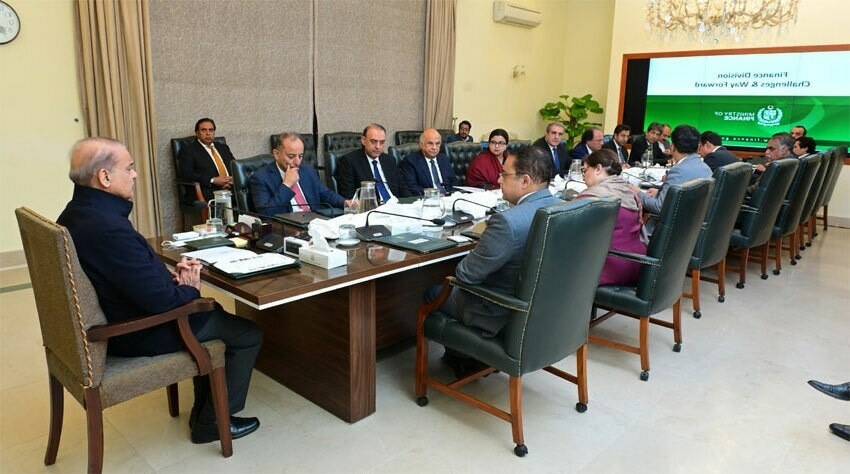Prime Minister Shahbaz Sharif has taken a historic step towards transforming Pakistan’s business environment by approving the launch of the largest ease of doing business reform program in the country’s history. This ambitious initiative is designed to attract both local and international businesses and investments by simplifying regulatory processes and enhancing the overall business climate in Pakistan.
A significant milestone in this reform program is the creation of Pakistan’s first digital registry of laws and rules governing business and investment. This digital registry aims to make it easier for businesses to navigate the legal landscape by compiling all relevant laws and regulations in one easily accessible platform. By doing so, the government intends to eliminate the bureaucratic hurdles that have long plagued businesses and investors, paving the way for a more transparent and efficient business environment.
Prime Minister Shahbaz Sharif expressed his gratitude to the international institutions that have shown interest in funding this transformative project. He highlighted the importance of finalizing agreements with these international partners, particularly recognizing the role of American development partners in supporting the government’s economic reform agenda. The prime minister emphasized the need for timely implementation of these policy measures, urging the relevant officials and ministries to move beyond meetings and consultations to ensure the success of the project.
To oversee the implementation of this reform program, Prime Minister Shahbaz Sharif has established a special committee that will focus exclusively on this task. The committee’s primary responsibility will be to ensure that the project is executed efficiently and within the stipulated timelines. The prime minister outlined that in the first phase of the project, sectors of high importance would be prioritized for reform. This strategic focus aims to bring immediate and tangible improvements to key areas of the economy, setting the stage for broader reforms in the future.
During a high-level meeting attended by federal ministers, provincial chief secretaries, and other senior officials, the prime minister acknowledged the contributions of Dr. Scott Jacob, who played a pivotal role in developing the project. He also praised the efforts of the Investment Board and other relevant departments for their assistance in formulating a comprehensive strategy for the reform program.
The meeting provided a detailed briefing on the project, including its scope, objectives, and timeline. It was noted that the digital registry would not only compile all laws and regulations related to business and investment but also identify and abolish outdated or unnecessary laws that have historically hindered business operations. The digitization process is expected to streamline procedures, reduce the time required for obtaining permits and registrations, and remove bureaucratic obstacles that have long frustrated business owners and investors.
This digital transformation is poised to accelerate private sector growth by creating a more conducive environment for business operations. By reducing red tape and making the legal framework more accessible, the government hopes to position Pakistan as one of the most favorable countries in the world for ease of doing business and investment.
Prime Minister Shahbaz Sharif has set a clear target for the project’s initial phase, instructing that the most critical laws and regulations be compiled and digitized by December 2024. This ambitious deadline reflects the government’s commitment to rapidly improving the business environment in Pakistan and attracting more foreign direct investment.
The prime minister’s approval of this reform program marks a significant shift in Pakistan’s economic strategy. By embracing digital solutions and cutting through bureaucratic red tape, the government aims to unlock the country’s economic potential and create new opportunities for growth and development. This initiative is not just about making it easier to do business in Pakistan; it is about transforming the country into a global hub for business and investment.
The success of this reform program will be closely watched by both domestic and international stakeholders. If implemented effectively, it could serve as a model for other countries in the region looking to enhance their business environments. For Pakistan, this program represents a bold step towards a more prosperous future, one where businesses can thrive, investments can flourish, and the economy can grow sustainably.




